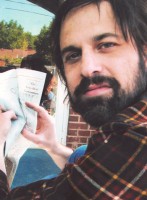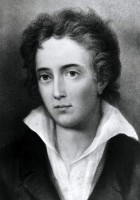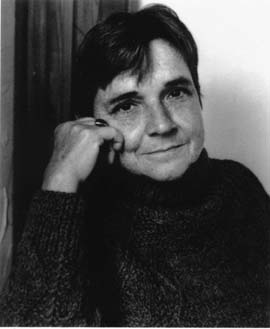Uncategorized
Creative Writing 101


For people who are following this series, I’m starting to think that it will make the most sense to post 1 per week, on Friday, which will cover both meetings of the class during that week (on Tues & Thurs nights). To come home and do the Tuesday post that same night or the next day would be too much, besides which if the class is actually checking in here, it might feel a little too rapid-response. I’d rather let the whole week play out, then do the post-game and give everyone (me, them, you) the weekend to mull it over and/or forget it ever happened. So that’s the new plan, and here we are with the field reports from 9/15 (Schutt & Dickinson) and 9/17 (more Berman, Percy Shelley, and a writing exercise). And for people who are just coming to the series now, the first two installments are here (1) and here (2). Everyone else, I’ll see you after the jump.


Tuesday, 9/15.
One student mentioned right before class started that he found this site, not when he googled me, but when he googled the Christine Schutt story. Seems I’m the only one talking about it lately. So I outed myself to the whole class (hi, guys!) and then we got on with the work of the day. You’ll recall from my last post that today’s reading was “Weather is Here, Wish You Were Beautiful” by Christine Schutt, a story from her excellent second collection, A Day, A Night, Another Day, Summer. We read her work paired with four poems by Emily Dickinson, selected from a larger list of recommendations that she made for me at my request. There are other Schutt stories that have a more obvious Dickinson connection, such as the two titled after Dickinson lines: “Because I Would Not Stop for Death” in Nightwork, and “Zero at the Bone,” which I believe is at this point uncollected. But I thought the project ought to be a bit more challenging than that, so I went for “Weather…” which is a favorite Schutt story of mine.
The first reactions were basically about what a hard piece it was to read. Disjointed, hyper-minimalist, dreamlike, confusing–lots of stuff like that. I’ve been teaching long enough now that this reaction didn’t really surprise me. The story is absolutely readable, but you have to allow it to teach you how to read it first–which is what all great literature does. The students, in short, were experiencing the shock of the new.
What did surprise me was the initial near-consensus that the characters in the story didn’t seem to care much about each other. Basically, the story is about these two guys and two girls who all live together in a house somewhere around a college in what seems to be the Midwest. The narrative unfolds in a series of brief, highly visual scenes. Schutt’s images are gorgeous and crystalline, and sometimes shocking–at least some of the people in class thought so. For some reason the initial reaction to the characters’ drug use, mockery of one another, and bed-hopping was that these things somehow precluded or interrupted the possibilities of intimacy and/or friendship. To me they seem more like the inevitable (even desired) results of extreme intimacy and friendship. Then a few people related personal stories about living situations they’d been in, and sort of talked themselves into seeing similarities between their own situations and the one in the story. I think a real appreciation for the nuance and depth of Schutt’s writing began to emerge. One student brought up Sartre’s No Exit, which I thought was a really key connection, though the difference is that the characters in “Weather…” aren’t really in Hell. In fact they might well be in Heaven, or both places at once. But the thing is- sometimes you just can’t tell.
We read a few snatches of the story aloud, like the scene where George is OD’d or close to it on top of the washing machine, and the main character is trying to get him to tell her what he took, then is trying to just keep him awake, and Alice is standing on the stairs telling her to just let him suffer. I argued that the main character’s interest in George’s well-being was evidence of their concern for one another, and furthermore that Alice was just annoyed, and didn’t really want the main character to let George maybe die on the floor.
“The main character…” Someone pointed out that just like in Hemingway’s “A Very Short Story,” the main character of “Weather is Here…” never gets named. Another similarity between the stories is the use of a very close third person, in Hemingway’s case to switch back and forth between the soldier’s and Luz’s perspectives; in Schutt’s case, to give us the main character’s observations about her housemates, but without the move into an “I”-voice that would have precluded some of the more pointed depictions of the main character herself. Yet another thing the two works have in common- a severe minimalist aesthetic, though their styles of execution are of course so different as to be practically antithetical.
Then we looked at the Dickinson poems. I started by asking for thoughts about the connection between the story and the poems, which was way too straightforward and so nobody wanted to take the bait. My mistake. So we put Schutt on the backburner for a while and talked about the poems strictly on their own, figuring we’d work our way from there back to Schutt when we were ready.
The general response was that “I heard a fly buzz when I died” was the easiest to comprehend, and “There came a wind like a bugle” was the hardest. We talked for a while about what Dickinson might have meant by “The doom’s electric moccasin,” but ended up spending the most time on “I felt a funeral in my brain,” the poem with these amazing lines which you probably already know well, but let’s hear them again:
As all the heavens were a bell
And Being but an ear
And I and silence some strange race,
Wrecked, solitary, here.
In some editions, that’s where the poems ends–and isn’t it about as strong an ending as anyone could ask for to anything?–but there’s actually another verse to it. I don’t know the whole history of the editing of Dickinson, but I gave them the version with the extra stanza, which goes:
And then a plank in reason, broke,
And I dropped down and down–
And hit a world at every plunge,
And finished knowing–then–
I chose to use the version with this extra stanza because I think it adds an extra layer of meaning to the poem. A handful of the students seemed familiar with Dickinson, and shared what they knew of her religiosity, agoraphobia, and penchant for writing about death (indeed, it is the subject of all four poems I selected). What’s fascinating about “I felt a funeral…” is that while most of the imagery is death-related, the funeral here is actually a metaphorical conceit for a discussion of something else: sanity, or spiritual limbo, or some combination of these. (Though one student did offer a convincing reading of the poem as the corpse’s real-time and literal narration of its own funeral, essentially a live-blog from the inside of a coffin.) It seems to me that to end the poem on “Wrecked, solitary, here” is to establish a Cain-like combination of solipsism and persistence of being. But the push onward into the final stanza pulls back from the bell and ear image (stunning as it is) and instead re-directs our attention to the central idea of the funeral procession in the speaker’s brain. The breaking of the “plank in reason” triggers what can only be read as a descent into madness, culminating in the obliteration of consciousness itself, and yet, given that the consciousness of the noise of the funeral was the original discomfort that eventually led to the speaker feeling apart from all of Being and the heavens, perhaps there’s some sweet relief in such obliteration.
Around this time, a student made another key connection, which brought Schutt back into play. He noticed that both Schutt and Dickinson use the image of a plank breaking (Schutt: “…and then Alice said she was ashamed; and the plank between them broke, and she and Alice commiserated…”) which was something neither I nor anyone else had picked up on. Brilliant! This more or less broke the dam on Schutt+Dickinson, and then we compared the two writers’ tactical deployment of repetition, rhythm, and exclamation points. The talk about repetition was especially powerful, I thought, since “I felt a funeral…” makes great use of “And” as a line-opener, and repeats both “treading” and “beating” in stanza one. We compared that to the place in Schutt’s story where three single-sentence scenes each begin with “He,” like a small poem snuck into the story. And another spot where one scene ends on the word “Oh” and the next scene begins with the word “oh.” A little bit later in the piece, Schutt does it again with “travel.” A student argued that there was a parallel between the ending of “There came a wind like a bugle” and the end of “Weather is Here…” He thought they both had a quality of pulling-back and taking-it-all-in, almost aphoristic, with Dickinson’s “How much can come / And much can go, / And yet abide the world!” compared to Schutt’s closing injunction to “drive fast!”
Fast past the wavy fields full of light and meaning–drive fast!
I love how this sentence comes full circle, starting and ending on the same word, turning on the axis of the “fields full,” a phrase which is recurring from the second sentence of the story’s first paragraph, back when the characters were traveling at “easy speed,” not yet needing so utterly to get away.
Then we spoke more generally about how Schutt’s prose seems informed by the Dickinsonian sensibility, and is just poetic in general. I wanted to talk about what it means to be inspired, and how the mechanics of inspiration work, but we were basically out of time by then, so I figured I’d save it. I feel like our collective method of approaching texts is beginning to change. I want them to become increasingly more comfortable with what Barthelme calls “not-knowing,” and I think we’re edging our way there. When we talked about “doom’s electric moccasin,” for instance, I finally admitted–after all the theories had been advanced–that I didn’t know what it meant and wasn’t sure that there was some literal meaning. And furthermore, who cared if there was? Perhaps it was noteworthy, I thought, that the phrase was compelling despite being absolutely baffling, or perhaps the bafflement was part of what drew us to it in the first place.
This in mind, I gave them a rare homework assignment- to go back through any of our readings to date, and pick out two or three phrases or fragments that just struck them, for whatever explainable or unexplainable reason. As examples from the present text I offered “the disappointed tide” from ED’s “Just lost, when I was saved!” and “tuneless crows in heavy flight” from the Schutt. We’re going to do an exercise with them on Thursday. Just two poems for Thursday- “Piano and Scene” by David Berman, and “Ozymandias” by Percy Shelley. We’re going to be interested in how each poet uses concrete detail.
Thursday, 9/17.
The best laid plans, man. Thursday got off to a decent start–I shared the reveal I’d neglected on Tuesday, that Schutt herself had selected the Dickinson poems, and we talked a bit about inspiration and influence. It was a very quick talk, and something we’ll revisit again before the semester ends, but here I was just trying to set them up for the exercise I had planned. Then an extra-literary issue arose that jolted us out of our rhythm, and took a little while to resolve. It worked out fine in the end, but we were behind schedule, so we had an abbreviated discussion of David Berman’s poem “Piano and Scene,” and pretty much bailed on Shelley altogether. The Berman poem, you might recall, was the one I decided to bring in because of a comment a student made about the first Berman poem I showed them (“Governors on Sominex”) about how the image of hair “shining like videotape” will probably be totally anachronistic within a generation.
In “Piano and Scene,” a man at a family gathering where he is not entirely comfortable (“and it’s hard for me to be in the mood / you need me to be in right now,”) allows himself to slip into a reverie about the distant future. He speculates on how it will be to feel things like “nostalgia for a discontinued model of robot / or patriotic feelings toward your galaxy.” After concluding that this will “probably resemble nostalgia and patriotism / as we now know it, but with added tiers of complexity,” it occurs to him that
Advanced as we consider ourselves,
we still allow ad copy to pander to us.
The scam exposed, it endures with our permission
as a parallel narrative running beside our lives
where we sit with an unbuttered baked potato
and a warm beer in multiple versions of Akron
leavened with foreclosure, heartburn and rain.
Since we were pressed for time, I spared them my lengthy Adbusters-worthy lecture on the evils of advertising and the heyday of late ’90s anti-corporate/commercial posturing. Too bad too, since it would have been the best thing Adbusters hasn’t published in eight or nine years, but oh well. I opted instead for a technical lesson–this is a class about how to write, after all–and talked about the physical arrangement of the poem, how it opens with a declarative single-line stanza (“A child needs to know the point of the holiday.”) followed by a four-line stanza full of specific details (“His aunt is saying grace over a decaffeinated coffee…”), but then opens up into seven two-line stanzas, the looseness of the spacing underscoring the casual, associative nature of the speaker’s musings, as well as setting each aphoristic expression apart in its own fortune cookie paper-width space. Then a return to density– the seven-line stanza quoted above marks the moment, essentially, of the speaker’s return to the present. Though still musing more or less philosophically, he’s now focused on an aspect of contemporary culture that he finds irritating and mildly disgraceful. By the fifth line of that stanza we’re firmly re-established in the world of objects, with our tasteless Midwestern potato et al.
We blew right past some great stuff (“Their genius was to let us criticize them / until it became boring and obvious to do so.”) to get to the end, where the speaker realizes that the bafflement and wonder and mystery with which he has been regarding the far distant future, is equally applicable to the immediate future, ie the veritable present, which is equally unknowable.
Perhaps we should be concentrating
on what’s going to happen an hour or two from now,
whether the human race will survive into this afternoon,
what kinds of food they will eat at the dinner table
and what tales they’ll tell of this morning.
So the language of the future-historian/anthropologist is now brought to bear on the present, the space of a day revealed as essentially both infinite and infinitely slipping away from us (past us, through us), and the result is–at least implicitly–the speaker’s return not just to same vague notion of “the real world” but specifically to the inevitable course of this particular afternoon with what I can only assume is his spouse’s family. It’s Thanksgiving, it’s Rosh Hashanah, it’s Arbor Day–whatever. They’re kibbitzing around, then they’ll eat.
So we did that. Onward, then, to our exercise! First we went around the room and everyone shared one or two of the two or three phrases they’d picked out from the texts, as per my assignment. If they had reasons for their choices, they were welcome to share them. Both Berman poems made a strong showing–“It was the light in things that made them last” was chosen by at least one student; another chose “the ice blue carbon pinwheels” of the mouthwash in “Governors on Sominex.” There were several others, including “souvenirs only reminded you of buying them.” From the Schutt, choices included “everything she said came out like sex” and at least two people liked “the cheese was in a sweat” from the picnic scene near the end. “Vaster than Empires” from Marvell got a nod, as did “Look on my Works, Ye Mighty, and Despair” from Shelley’s “Ozymandias,” which occasioned a brief aside on Shelley’s use of detail to establish the poem’s central irony, which was really all I’d ever wanted to say about it in the first place. Another Ozy line, “the lone and level sands…” got picked at least twice. Two students picked another Shelley line from the incomplete poem whose beginning happened to be on the same page “Ozymandias” was on in the edition I photocopied from (Shelley: The Major Works, from Oxford World’s Classics). That was fine by me. One of the picks was “Till the ship has almost drank” and I can’t remember the other. (The poem is “Lines Written among the Euganean Hills, October, 1818.”) Two students chose the “you love them more than you love your own” line from the Diaz story, and another student chose “Try to sleep. It won’t help.” which is from that story too. Dickinson picks included “the doom’s electric moccasin,” which I’m starting to think might be the class motto, as well as the “panting trees” line from “There came a wind like a bugle.” Also, “And finished knowing–then–” and the “beating, beating” line, both from “I felt a funeral in my brain.” (Aside: Apologies if I’m slightly garbling any of the quotes in this paragraph. They are quoted 100% from memory. For perfect beauty everlasting, consult the originals.)
I think overall, Berman and Dickinson were the most-quoted. Least-quoted would have to be Hemingway and Ellen Kennedy, which makes sense, because the way that I phrased the assignment encouraged people to seek out dense, intense snatches of language, and their writing functions in a very different way.
After we’d all shared our choices, I announced the exercise. Take any one of the three phrases you picked out, and stick it at the top of a piece of paper. That phrase (a la Schutt’s Dickinson-borrowed “Zero at the Bone”) is now the title of a short story you are going to begin writing right now.
So we did that for about fifteen minutes. As usual, I showed solidarity by doing my own exercise with them. If you’re wondering, the two snatches of language I picked out were “tuneless crows in heavy flight” from Schutt and “the disappointed tide” from Dickinson. I wrote a short-short titled after the latter, though it wound up being mostly about flying–go figure.
When time was up, I encouraged the students to keep working on this piece outside of class, and suggested that it would make a good candidate for their midterm portfolio, which will consist of revised/expanded versions of any three in-class exercises. I think this will be a stimulating assignment because it combines elements of prompted writing and free writing, but in such a way where even the prompted writing was freely chosen, albeit unwittingly.
So that was our class. I had originally planned to shift gears toward full-length short fiction today, and give out either “The Bad Thing” by David Gates or else “The Gun Lobby” by Jim Shepard, but then I remembered that Adrienne Rich is visiting Rutgers next Wednesday (9/23) and the school seems pretty psyched about it–why not? I mean it’s Adrienne Rich–so I decided to keep the boys and their respective tales of marriages gone awry on the bench this week.
With the help of the assistant director of the program (is it scandalous that I don’t own an Adrienne Rich book of my own?) I managed to acquire about a dozen Rich poems, of which I picked five. For those of you playing along at home, the poems I chose are “Diving into the Wreck,” “Storm Warnings,” “Dedications,” “Origins and History of Consciousness” and “Phantasia for Elvira Shatayev.” Then I spent some time on the net and found an essay by Rich from the Guardian in 2006 where she talks about the function(s) of and need for poetry. It is called “Legislators of the World” and it begins with some words about the lately short-shrifted Percy Shelley. Of course when I chose the essay I didn’t yet know I was going to short-shrift him, I just thought it would be another useful cross-wire–which is basically what it still is. So it looks like Shelley will get his day in our sun after all, plus now our non-fiction cherry will be popped.
It will be interesting to see how the tendency toward politicized textual analysis (debated at length in the comments thread appended to CRW101 post #2) plays out in a context where the work and its author are both aggressively courting that kind of reading, which is of course the case with both Shelley and Rich. If you’re as curious as I am, be sure to tune in next week…

One night only!
Tags: Christine Schutt, Creative Writing 101, David Berman

Keep ’em coming, Justin.
Keep ’em coming, Justin.
good post. i’m going to read christine schutt now, you convinced me.
good post. i’m going to read christine schutt now, you convinced me.
Seeems like every sentence of her’s is beautiful.
Seeems like every sentence of her’s is beautiful.
Every. Single. One. My hand to God.
Every. Single. One. My hand to God.
Sweet! Two more and I win a toaster. No but seriously, you’re in for a treat.
Thanks, Kyle. You can bet on it.
Sweet! Two more and I win a toaster. No but seriously, you’re in for a treat.
Thanks, Kyle. You can bet on it.
i really like that schutt story. your class seems great.
i really like that schutt story. your class seems great.
i want to take your class.
should i read florida or that collection first?
i want to take your class.
should i read florida or that collection first?
For my money, it’s A Day A Night before anything else. You might have a weird experience of Florida, since you’re living there. it exists in the novel as a kind of fantasy-place (like Stevens writing about the tropics) that might be less open to you than to others, but maybe that double weirdness of it’s-hard-for-me-to-feel-this-way will be interesting. Also, don’t shrug off the new one, All Souls, just because it was pretty popular and is about a private school on the UES. it’s got this ecstatic breathless quality that’s really amazing. It was not for courtesy’s sake that it got nom’d for the Pulitzer, if you know what I mean.
For my money, it’s A Day A Night before anything else. You might have a weird experience of Florida, since you’re living there. it exists in the novel as a kind of fantasy-place (like Stevens writing about the tropics) that might be less open to you than to others, but maybe that double weirdness of it’s-hard-for-me-to-feel-this-way will be interesting. Also, don’t shrug off the new one, All Souls, just because it was pretty popular and is about a private school on the UES. it’s got this ecstatic breathless quality that’s really amazing. It was not for courtesy’s sake that it got nom’d for the Pulitzer, if you know what I mean.
haha, well hopefully i won’t be in Florida for that much longer, but i already see this state as a sort of closed system that can only refer to itself, a paratext or something–i think Florida’s would be a really claustrophobic and interesting reading experience. I’ll read A Day A Night first, I think.
Re: All Souls, I wouldn’t shrug off a book for the reasons listed, though the cover is a little chick lit-ish.
haha, well hopefully i won’t be in Florida for that much longer, but i already see this state as a sort of closed system that can only refer to itself, a paratext or something–i think Florida’s would be a really claustrophobic and interesting reading experience. I’ll read A Day A Night first, I think.
Re: All Souls, I wouldn’t shrug off a book for the reasons listed, though the cover is a little chick lit-ish.
that last thing was intended as a joke.
that last thing was intended as a joke.
You are so cool for doing this, and have really gone out of your way, it seems to me, considering the thoughtfulness and thoroughness of your post.
I think the Friday idea is great all ’round – and will give MY weekends a new bent.
I am paying attention!
I am having fun!
Thank you!
You are so cool for doing this, and have really gone out of your way, it seems to me, considering the thoughtfulness and thoroughness of your post.
I think the Friday idea is great all ’round – and will give MY weekends a new bent.
I am paying attention!
I am having fun!
Thank you!
This is so great. I’m enjoying all of it.
This is so great. I’m enjoying all of it.
epic, illuminating
epic, illuminating